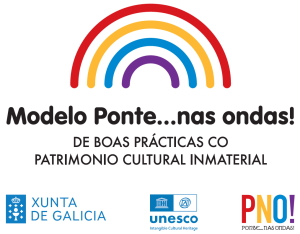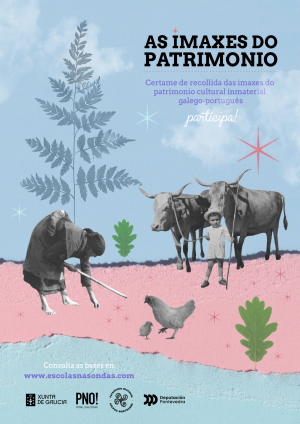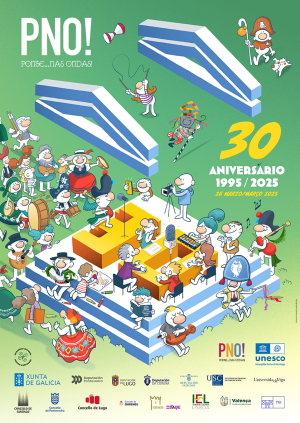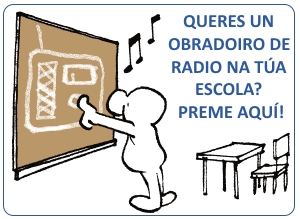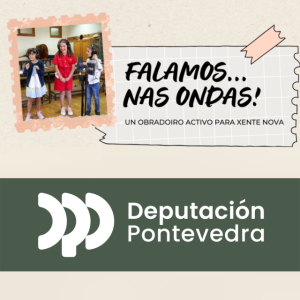• In the year of its 30th anniversary, PNO! has been carrying out various activities with a focus on transmitting the traditional chansonnier to new generations.
• Meniños Cantores and Cores do Atlántico, reference examples of pioneering projects in the enhancement of oral heritage, whose materials are still available to Galician and Portuguese schools.
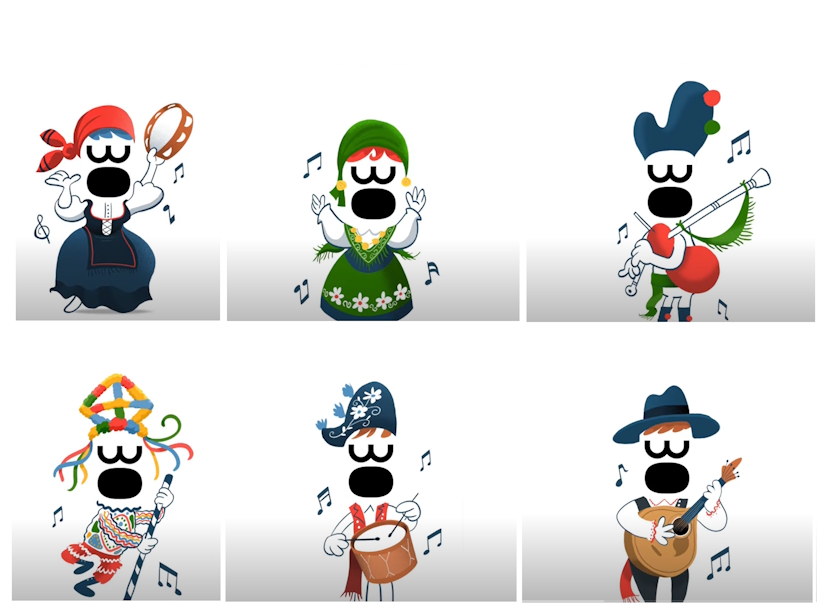
The celebration of the “Día das Letras Galegas” (Galician Literature Day) 2025 is an opportunity to claim the Galician-Portuguese oral heritage, a heritage shared with the Portuguese language and which Ponte…nas ondas! has been disseminating for three decades.
Coinciding with its 30th anniversary, Ponte…nas ondas! is carrying out a series of activities that focus on transmitting the traditional songbook to new generations, as evidenced in the radio multi-broadcast on March 26 from 9 locations in Galicia and Portugal.
(https://www.youtube.com/watch?v=ZNIa8-1lcoE)
Ponte…nas ondas! as a UNESCO consulting NGO for the Intangible Cultural Heritage aims to make this common heritage known to the new generations of both territories and claims the common oral heritage with the Lusophone community.
In line with UNESCO recommendations
UNESCO, in the Recommendation on the Safeguarding of Traditional and Popular Culture, adopted on November 15, 1989, states that “traditional and popular oral literature is part of the cultural heritage of humanity and deserves to be recognized, valued and preserved”. And concludes that “traditional oral literature is recognized as an essential form of popular culture that must be safeguarded as intangible cultural heritage of humanity due to its fundamental role in preserving the identity, history and values of communities”.
The lyrics of the songs of the oral tradition are a shared heritage that make Galician literature a universal expression, which not only learns and knows the new generations of Galicia and Portugal, but also other people from other places who sing and dance with the same words and melodies.
The traditional songbook is already present in the medieval “Cantigas de Amigo” (literally, “friend songs”) as studied by Carolina Michaëlis de Vasconcelos in the chapter “Vestígios de poesia popular galego-portuguesa archaica. Sua semelhança com as modernas cantigas do povo. Seu influxo provisió na poesia trovadoresca”, in the second volume of her critical edition of the Cancioneiro da Ajuda, published in 1904.
The examples of Cores do Atlántico and Meniños Cantores
Professor Ria Lemaire, in the book Cores do Atlántico, a project promoted by Ponte…nas ondas!, defends the influence of women’s singing in the “Cantigas de Amigo” and even questions the supposed male authorship of a part of the “Cantigas de Amigo” (www.coresdoatlantico.eu).
Rosalía de Castro dignifies our oral literature in her Cantares Gallegos by putting her songs in the mouths of women and elevating them to the literary category.
Domingo Blanco and Carlos Nogueira, scholars of Galician-Portuguese oral literature, have documented and studied the analogies of the traditional songbook between Galicia and Portugal. These songs that we celebrate in this year of Galician Literature are being sung in Portugal and also in other countries where the people who carry them have taken them.
An example of this shared oral heritage was included in the publication of Meniños Cantores in 2005 and can be seen here:
https://www.youtube.com/watch?v=73nJWlLPigA


